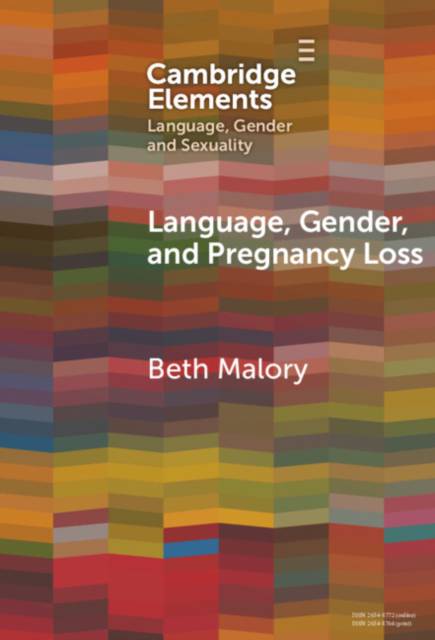
Bedankt voor het vertrouwen het afgelopen jaar! Om jou te bedanken bieden we GRATIS verzending (in België) aan op alles gedurende de hele maand januari.
- Afhalen na 1 uur in een winkel met voorraad
- In januari gratis thuislevering in België
- Ruim aanbod met 7 miljoen producten
Bedankt voor het vertrouwen het afgelopen jaar! Om jou te bedanken bieden we GRATIS verzending (in België) aan op alles gedurende de hele maand januari.
- Afhalen na 1 uur in een winkel met voorraad
- In januari gratis thuislevering in België
- Ruim aanbod met 7 miljoen producten
Zoeken
Omschrijving
This Element explores the gendered dimensions of the ways language used to describe, define, and diagnose pregnancy loss impacts experiences of receiving and delivering healthcare in a UK context. It situates experiences of pregnancy loss language against the backdrop of gender role expectations, ideological tensions around reproductive choice, and medical misogyny; asking how language both reflects and influences contemporary gender norms and understandings of maternal responsibility. To do this, the Element analyses 10 focus group transcripts from metalinguistic discussions with 42 lived experience and healthcare professional participants, and 202 written metalinguistic contributions from the same cohorts. It demonstrates the gendered social and symbolic meanings of diagnostic terminology such as miscarriage, incompetent cervix, and termination or abortion in the context of a wanted pregnancy, as well as clinical discourses, on the experience of pregnancy loss and subsequent recovery and wellbeing. This title is also available as Open Access on Cambridge Core.
Specificaties
Betrokkenen
- Auteur(s):
- Uitgeverij:
Inhoud
- Aantal bladzijden:
- 90
- Taal:
- Engels
- Reeks:
Eigenschappen
- Productcode (EAN):
- 9781009633871
- Verschijningsdatum:
- 13/11/2025
- Uitvoering:
- Hardcover
- Formaat:
- Genaaid
- Afmetingen:
- 152 mm x 229 mm
- Gewicht:
- 290 g

Alleen bij Standaard Boekhandel
+ 225 punten op je klantenkaart van Standaard Boekhandel
Beoordelingen
We publiceren alleen reviews die voldoen aan de voorwaarden voor reviews. Bekijk onze voorwaarden voor reviews.









